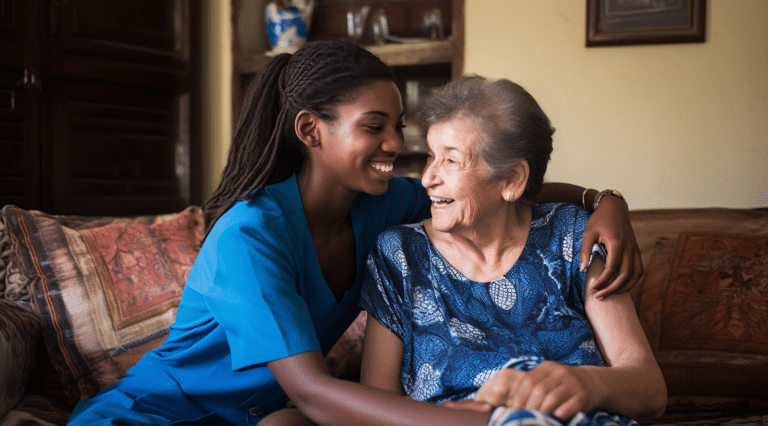A diagnosis of ALS can be heartbreaking. Amyotrophic lateral sclerosis, also known as ALS or Lou Gehrig’s Disease, is a nervous system disease that affects nerve cells of the brain and spinal cord, causing an inability to control the muscles. It has no cure and gets worse over time, making it impossible for the person diagnosed to take care of themselves independently.
Who is at Risk For ALS?
Men between the ages of 60-80 are most at risk for developing ALS. If there is a family history of the disease, it increases their risk. Smoking seems to increase the risk as well, especially for women who smoke after menopause.
ALS Symptoms
It often begins with muscle weakness and slurred speech, but as the disease progresses, the symptoms worsen over time. The symptoms will vary based on which nerve cells are affected. Common symptoms your loved one might experience are:
- Weakness in the feet, legs, and ankles. This weakness can lead to falling, tripping, and struggling to walk.
- Muscle cramps in the arms, shoulders, and tongue.
- Inability to grasp or hold items with the hands.
- Trouble swallowing and slurred speech.
- Uncontrollable crying, laughing, or yawning.
- Behavioral and cognitive changes.
There’s generally no pain as the disease progresses, and the senses stay intact.
Personal Care at Home Services Can Help Manage ALS Symptoms
Taking care of a loved one with ALS can put a lot of stress on a caregiver. As the disease progresses, they will need help with performing more tasks and staying safe in the home. Personal care at home providers can help your loved one and you navigate these new challenges with needed support.
Grooming
It can become difficult for your loved one to groom himself each day. A personal care at home provider can help with shaving, combing his hair, and keeping his nails trimmed, along with any other personal grooming needs he may have. They can step in when you are unable to assist or need a break to do something else.
Bathing
Your loved one may not be able to stand in the shower or get in and out of the bathtub as the disease progresses. Personal care at home providers can help by assisting in his bathing routine, from getting him safely in and out of the shower or tub to drying him off and helping him get dressed afterward.
Toileting
While most patients with ALS do not lose control of their bladders, your loved one will need help getting to the bathroom and using the facilities. If you are the caregiver of a parent, you might find your loved one doesn’t want your help in these areas. He might feel self-conscious or embarrassed. He might find using a trained personal care at home provider makes him more comfortable.
Eating
When your loved one is unable to pick up a spoonful of soup or cut his omelet into bite-size pieces, he will need some assistance in helping him eat safely. He will probably also need someone to help with holding his cup or glass for drinking. Personal care at home professionals can help your senior care with these daily tasks.
Developing your personal care at home team early in the disease’s progression will help you shift and make changes as the disease progresses, providing your loved one with the best care available.
If you or an aging loved one are considering Personal Care at Home in Denver, CO, please contact the caring staff at Talem Home Care & Placement Services of Denver, CO, today. Call (303) 647-1800
At Talem Home Care & Placement Services of Denver, CO, we provide passionate, understanding, and flexible caregivers in Denver, Englewood, Lakewood, Aurora, Littleton, Highlands Ranch, Parker, Centennial, Lone Tree, Castle Pines, Castle Rock and surrounding areas in Colorado.
- Helping Your Introverted Senior Make Connections - April 23, 2025
- The Impact of Sleep—Good or Bad—on Alzheimer’s Prevention - April 7, 2025
- Reducing Allergy Symptoms with Better Home Care - March 24, 2025







